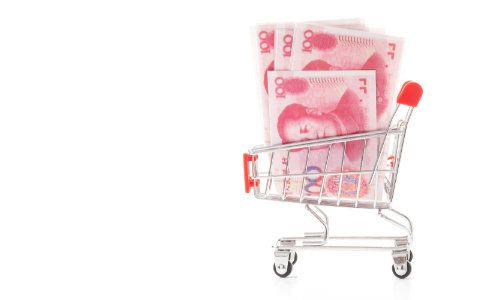Chinese Retailers Under Pressure
As the use of cash dwindles in China, the authorities are now stepping up pressure for retailers to accept cash.
China's retailers must accept cash, even though many of their customers choose to pay via Alipay, WeChat Pay or other popular third-party payment apps. Last July, the People's Bank of China (PBoC) issued a formal notice to communicate that renminbi cash was legal tender and that refusing it was illegal.
PBoC last year launched a nationwide campaign to crack down on merchants who refused to accept bank note and coins. So far, it identified 602 cases of cash refusal, wherein 558 have been resolved through policy communication, according to the official Shanghai Securities News and central bank spokesperson.
Too Powerful
The moves have been made to ensure that no payment provider can dominate the retail payment landscape, particularly Ant Financial and Tencent with their AliPay and WeChat Pay respectively. From January this year, all third-party payment providers will have to hold 100 percent of customer cash deposits in non-interest-bearing accounts at PBoC, depriving them of interest income typically earned by banks.
The central bank also denied licenses for the two payment giants to launch credit-rating businesses due to concerns users could be pushed to purchasing their own line of products. Chinese mobile payments reached 120 trillion renminbi last year in 2017, more than double the amount a year ago, according to figures from iResearch.
Luckin Coffee and Freshhippo Under Scrutiny
Freshhippo, a line of supermarkets launched by Alibaba last year, and Luckin was among the groups that could be under government scrutiny. Staffers at four Luckin Coffee outlets mentioned that the group did not accept cash, according to a report in «Financial Times» (behind paywall).
«All the franchiesed outlets of Luckin should order on our app and pay online» a staffer at an outlet in Shanghai was quoted as saying.



























